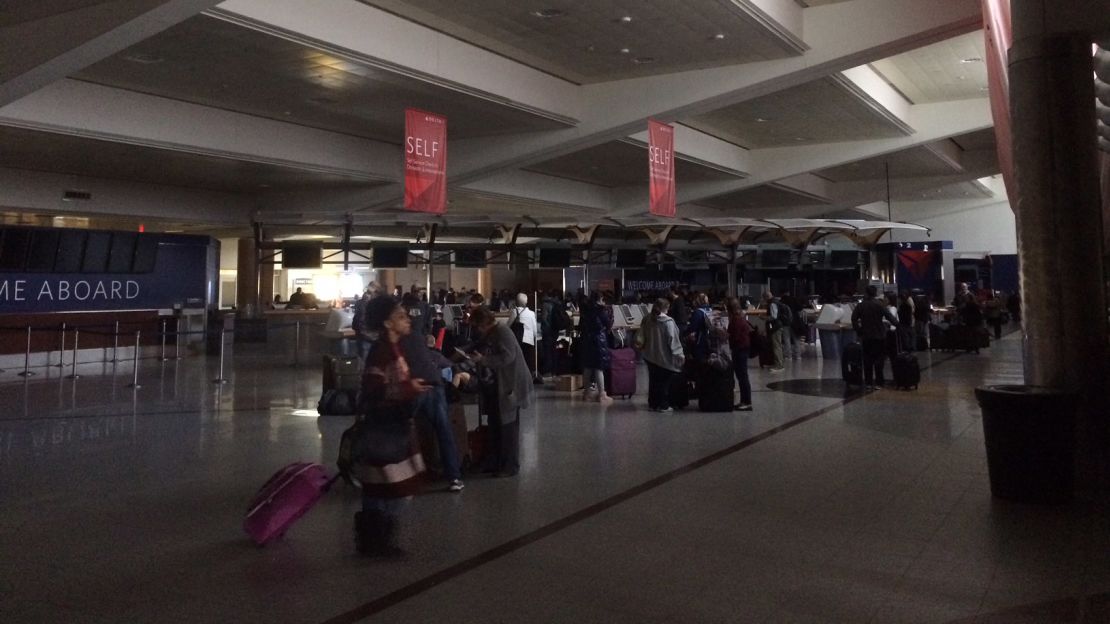The timing could hardly have been worse.
Eight days before Christmas and heading into one of the busiest travel weeks of the year, the planet’s busiest airport was knocked offline for hours by an apparent fire in underground electrical equipment between its huge concourses. Terminals were without power, jetways inoperative. The airport was at a standstill.
The approaching peak in holiday season travel adds significant new complications to full recovery.
“It’s going to be difficult to get everyone where they want to go,” said Robert Mann, principal at R.W. Mann & Company, an airline industry consultancy.
Airplanes are typically booked 90% to 100% full this time of year, leaving few spare seats on flights available for stranded passengers. Airlines for America estimates 51 million people will fly on U.S. airlines during the 21 day holiday period from December 15 to January 4.
“There just aren’t a lot of empty seats,” said Mann.
And with the power outage, bags were held on airplanes until power was restored shortly before midnight Sunday.

In many ways, Sunday’s outage was no different from a massive snowstorm blowing through the region. The difference is that ATL, the airlines and the average 275,000 passengers that go through the airport every day didn’t get any advance notice.
“Because it was on a Sunday, the volume was significantly lower than it would typically be” during the week, said Atlanta Mayor Kasim Reed in a press conference.
But even on a light day, Atlanta is one of the most important air transport nodes in the country.
More than 104 million passengers flew through the airport in 2016, making it the busiest on the planet, according to Airports Council International. Beijing ranked as second busiest.
What happens at Atlanta can ripple through the United States and around the globe. Around 80% of the population of the United States is within a two-hour flight of Atlanta. Delta Air Lines, the largest carrier at the airport, had 900 flights canceled and another 48 diverted.
Delta and Southwest Airlines (the second largest in Atlanta) carries about 85% of the passengers there and the roughly remaining 15% is split between the other US airlines and international carriers flying to Atlanta, according to the airport.
Delta flies three of every four passengers that travel through Atlanta. Delta serves more than 200 cities from Atlanta, including around 70 internationally, with more than 1,000 departures on the airline’s peak day.
Just how quickly Delta recovers from the outage will depend in large measure on how effective the airline has become at recovering from massive distruption at its biggest hub. In April, wave after wave of severe thunderstorms in Atlanta knocked its operations into disarray, leaving crews and planes out of position. It took the carrier days to get back on its feet.
A senior Delta operations leader called the April events “one of the most challenging recovery efforts we’ve seen as an airline.”
The outage is the second such hit the carrier has taken this year.
Correction: A previous version of this story misstated the percentage of passengers Delta and Southwest Airlines carries to Atlanta's Hartsfield-Jackson International Airport.



